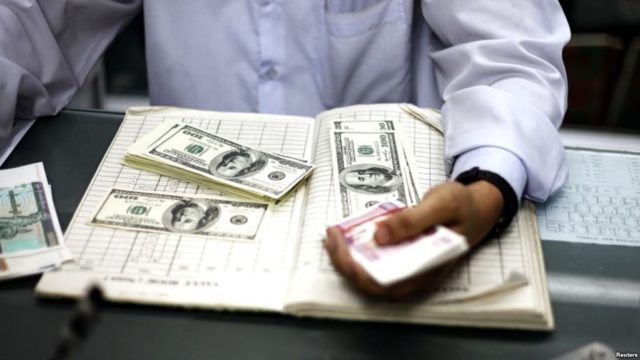The Central Bank of Costa Rica (BCCR) wants that when financial entities sell or buy US dollars from the public, they apply the same exchange rate to their clients, regardless of the volume of money that is going to be negotiated.

Currently, entities announce their exchange rates for sale and purchase right at the cashier box office’s window. That value is what they apply to small customers, but if a person or company is going to trade a large amount of foreign currency can negotiate with the bank more beneficial exchange rates.
The Central Bank published on last Monday, May 21st, 2018, in La Gaceta, a draft agreement of the Board of Directors in which it puts in consultation a modification in Articles 3 and 22 of the Foreign Exchange Transaction Regulations.
This text defines the exchange rates announced at the purchase and sale window as the minimum price at which the entity is committed to acquiring foreign currency from the public, and at the maximum price at which it is committed to selling foreign currency to the public.
These exchange rates, the text adds, should consider any surcharge for commissions or other additional costs, in such a way that the announced exchange rate is the final amount that the client will receive or pay for the currency traded.
So far, there is a foreign exchange margin -which arises from the difference between the exchange rates of dollar purchases and sales announced at the window- and another effective margin -which arises from the exchange rates actually applied by the entities.
As explained by the exchange authority in the draft agreement, the margin that arises from the announced exchange rates is twice the effective margin, and it is the first that applies to the largest number of exchange transactions.
Among the considerations, the Central Bank justifies that there is an asymmetry since some people have information on exchange rates and others have information on other issues. “The exchange rates announced to the public do not reveal the true prices to which the exchange intermediaries carry out the transactions, the latter being the ones that are relevant for the decision making of the client on the entity that offers the best price conditions”, argues the banking institution.

This adds that the distribution of the exchange rates announced between the exchange intermediaries (whether they are buying or selling) is very uniform, but not at the effective exchange rates (which actually apply).
“The asymmetry of information prevents the mobilization of foreign exchange transactions to intermediaries that offer the best exchange rates to the public, flows that would lead to better price formation,” the entity added in its justifications.
The Central Bank also points out that the exchange intermediation margin is dissociated from the cost of providing the service, given that it does not present significant differences depending on the type of negotiation used (ATM, cashier or internet, for example). Electronic media have lower costs for entities.
The president of the Central Bank, Olivier Castro, explained that the regulatory amendment allows the exchange market participants to know who are the intermediaries that offer the best purchase and sale prices of the currency, and this would promote greater competition.
The Costa Rican Banking Association was consulted, and its director, María Isabel Cortés, responded that they are working on the issue. “From the preliminary examination carried out by our legal advisors, they indicate that the proposal exceeds the regulatory power of the Central Bank”, explained Cortés.
For its part, Anabelle Ortega, Executive Director of the Chamber of Banks and Financial Institutions of Costa Rica, said that the modification is in the process of consulting the banking and financial operators.
“However, the preliminary examination carried out by our legal advisors, indicate that the proposal exceeds the regulatory power of the Central Bank, because what it proposes is a price control of currencies, which in turn would violate the Law of Promotion of the Competition, among other legal norms”, concluded Ortega.

